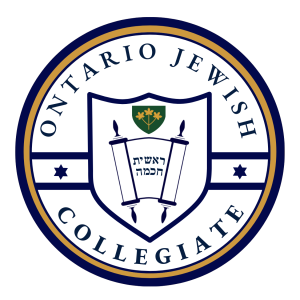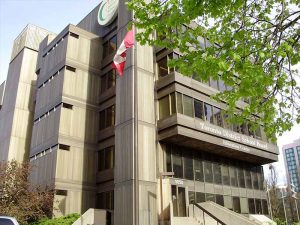Following the Hamas attacks in Israel Oct. 7, Jewish schools across Canada have increased the mental and emotional support systems for students who may have family affected by the war or have viewed the graphic and horrific images coming from the attacks.
The impact of the war was felt immediately at Winnipeg’s Gray Academy of Jewish Education where a dozen Grade 12 students from Israel had arrived as part of an exchange program just a few days prior to the Hamas attacks.
“Waking up on Saturday morning, and for some, it was late Friday night, with the shocking news put us into a whole different place of both caring for our school community and caring for our delegation,” said Gray’s principal, Lori Binder.
For Binder and the community in Winnipeg, that meant ensuring support measures were in place for their Israeli guests in addition to those for Gray’s own students.
In the early hours of the tragedy, the Israeli students and teachers, and their student hosts, gathered at the school on Saturday afternoon.
“We came together to talk, to hold one another up,” Binder says.

The sister school arrangement between Gray Academy and the Danciger School in Kiryat Shmona has lasted for 26 years.
The Israeli delegation ended up staying in Winnipeg for more than a week following the attacks.
“Caring for our students… (from Kiryat Shmona) gave us a little bit of purpose, to care for them as they were here for that extra week and longing to go home to family,” Binder said.
When Gray Academy’s visitors finally left Winnipeg, communities near the Lebanon border, including Kiryat Shmona, had already been evacuated for security reasons and were relocated closer the centre of the country.
“They were going home to family, but not back to their physical homes,” says Binder.
Binder said goodbye to the Israeli students the same way she had greeted them, with a quote from a poem by Yehuda HaLevi. “My heart is in the east and I in the uttermost west,” she told them.
“That could not be more true right now.”
Meanwhile, in Gray’s classrooms, teachers bring up current events in developmentally age-appropriate ways and an extra child psychologist has been on hand for those who wanted to speak, including elementary students.
“Every school, every Jewish organization is trying to find its pathway to care for one another during this time,” Binder said.
At TanenbaumCHAT, Toronto’s largest Jewish high school, several students have parents who are doctors heading to Israel to help out, while their children and spouses remain in Toronto, said Heather Weinstock, director of student services.
Weinstock says with so many students directly impacted, a significant number are having trouble with focusing or remaining in class or even sleeping properly.
“We have children who aren’t able to wake up in the morning because they [spend] too much on social media, unfortunately, and they close their eyes and see horrific pictures that no one, especially a young teenager, should have to see.”
The school’s resources to address mental health concerns include the guidance department, a full-time JFCS social worker and a full-time nurse. Recently, two volunteer social workers from the Jewish community stopped by each classroom, offering students age-appropriate coping strategies.
“Now more than ever I think we all recognize the importance of a strong and robust Jewish high school,” Weinstock said.

There’s strength in numbers, and there is nothing more impactful than standing next to another 1,300 students, arm in arm, shoulder to shoulder, in support of each other and in support of Israel. The fact that there is such a community in Toronto is in itself, so empowering.”
The high school has also taken steps to help staff identify and support students’ emotional needs.
“We recognize that trauma, or secondary trauma, looks different in everybody, and we’ve taken the time to actually train the staff to be aware of the signs in students, to make sure that we address those signs when we see them in real time,” Weinstock said.
The school has launched several school-wide programs like a blue-and-white doughnut fundraiser for Israel and collecting first aid kits and medications to be sent to Israel.
Some of the initiatives, like sending video messages to IDF soldiers, have come from the students.
“They’re going around with their phones, and they’re creating little videos of each other, sending wishes to the IDF, some in Hebrew, some in English, just sending messages home,” Weinstock said.
“I think that this really empowers the students, and this is part of the resilience and the strength, being able to be part of a solution and contribute in a meaningful way.”
The school is also emphasizing that critical thinking extends to students’ media consumption.
“When they do have an opinion, [the hope is] that’s based on facts and critical thinking. That’s really the goal, to be able to go off into the world… advocate for what they believe in, with the accurate background and history behind them.”
Weinstock recounts one powerful moment at the school that she won’t soon forget.
“We gathered all the students in one room to sing ‘Am Yisrael Chai.’ We wished each other Shabbat shalom. We listened to a very uplifting speech by one of our vice-principals,” she recalled.
“And we just hugged, we cried and we went home and we lit the Shabbat candles and we just prayed for Israel. And all of these things are what make us such a unique community. And that’s how we’re dealing with it on a day to day [basis] for these kids.”
Dan Held, chief program officer at UJA Federation of Greater Toronto says schools recognize the “profound impact” of the war on students’ mental health.
“There’s the primary trauma of the war in Israel and the secondary trauma of what people, kids especially, are experiencing through social media news reports, and the events here in Toronto.”
The Federation held a webinar on Oct. 9, for around 70 counsellors from Jewish day schools about how to help students and has also sent volunteer mental health professionals to Jewish institutions.
A Canada-wide meeting of heads of Jewish schools was also convened with participants from Ottawa, Calgary, Edmonton, Winnipeg, Toronto, Montreal, Vancouver, and London, Ont.
“Those are really important conversations because the school heads are supporting each other as they develop policies for mental health,” Held said.
“The war will impact the way that future generations of young Jews in our community think about themselves, think about their Jewish identity and think about their Zionist identity,”
At Vancouver’s King David High School, the war has already come very close to home with the death of alumni, Ben Mizrahi, 22, who was killed in the attack on the Supernova music festival on Oct. 7. One of his younger brothers currently attends the school.
“We’re talking with our students, having some smaller group sessions, especially with our senior students, because they’re directly affected by their classmate’s brother being killed in Israel,” said Lu Winters, an academic and student wellness coordinator at the school.
The school has two wellness and academic counsellors (including Winters) and two counsellors who help senior students prepare for postsecondary education.
Winters adds that staff have also gathered for mutual support since the attacks, both inside and outside of the school.
“Our school feels like it has always felt, like a supportive container for our staff, our students and our families.”
Winters says teachers and staff at King David work closely to equip students with a fact-based history of the conflict in Israel.
“Of course, we’re talking about what’s going on in Israel. We give them the accurate facts so that we can wrestle with the issues and really have factual knowledge of what’s going on in the world.
“These kids are all on social media, and there’s just so much information out there, we want to make sure that what they’re learning inside of our container is accurate, complete, and factual.”
When it comes to attending vigils and other community gatherings, Winters says the school encourages families to go, while taking precautions.
“We encourage our families to go [to Israel rallies and vigils] if they feel like that’s right for them, and to maintain their personal safety by going in groups, strength in numbers and not communicating with people who are going to be oppositional.
“We’re trying to be careful and diligent with our own personal safety while we are supporting our community and standing up for Israel and standing up for each other.”
Winters adds that King David has received support from public schools in Vancouver who have reached out to express their condolences and sent treats to the school staff.
“We’ve also had, old staff, who have kind of moved on, come back and visit us. We’ve had plenty of alumni come back to our school and want to be in our container.”
Author

Jonathan Rothman is a reporter for The CJN based in Toronto, covering municipal politics, the arts, and police, security and court stories impacting the Jewish community locally and around Canada. He has worked in online newsrooms at the CBC and Yahoo Canada, and on creative digital teams at the CBC, and The Walrus, where he produced a seven-hour live webcast event. Jonathan has written for Spacing, NOW Toronto (the former weekly), Exclaim!, and The Globe and Mail, and has reported on arts & culture and produced audio stories for CBC Radio.
View all posts








